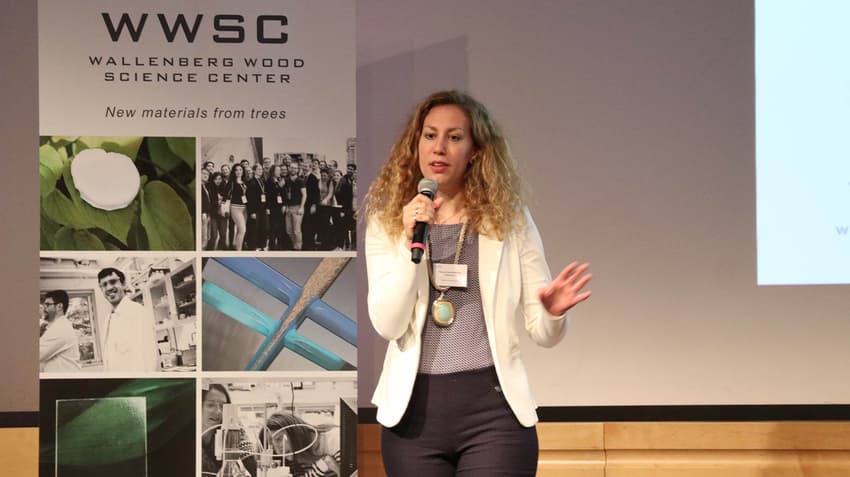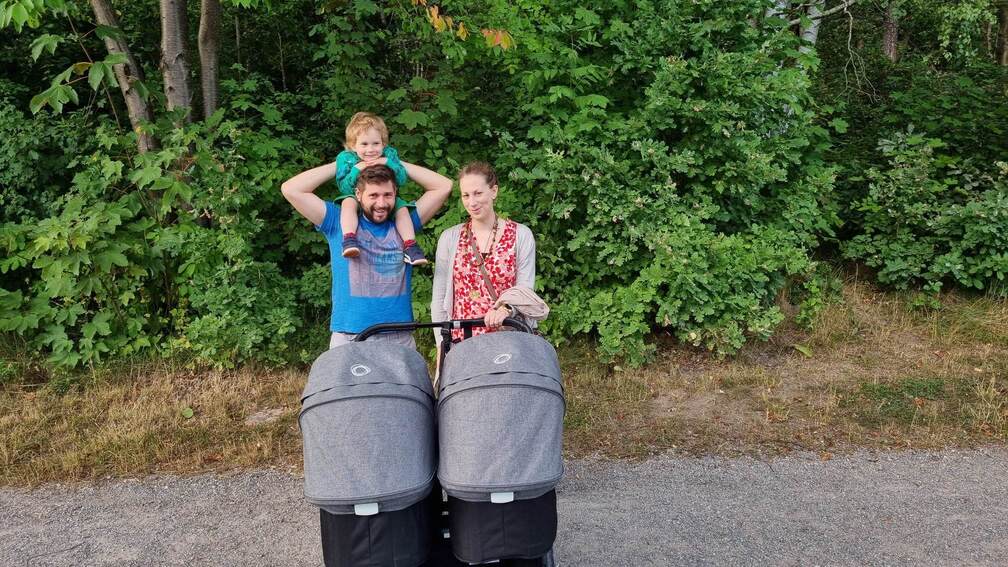How advanced technology and flat hierarchies convinced this researcher to move to Stockholm
Stockholm wasn't Greek chemistry researcher Varvara Apostolopoulou Kalkavoura's first choice of destination to extend her knowledge and professional networks. Yet within six months of arriving, she knew she had found the ideal place to establish her academic career, and one day make her home.

Wanting to undertake her Erasmus program with a friend, Varvara chose Stockholm, which had two places available. Arriving in 2009, she soon understood that she'd found a place that gave her exactly what she needed.
"I loved the organisation and structure that the university provided - I knew exactly what I was expected to study for, and how exams and assessments were contributing to my learning. I was also working with cutting-edge research and materials."
"I also found the city itself impressive. It's a beautiful place, you can get around easily, problems can be resolved quickly and technology is at a high level. I didn't have to worry about my internet connection, which isn't the case everywhere. I didn't even mind that it was relatively cold, coming from Greece!"
Choosing a world-class research environment
After graduating, and having experience in the field of wastewater management in both Greece and Sweden, in 2012 Varvara decided that it was time to go back to academia.
"What ultimately led to me deciding to do a PhD in Environmental Chemistry at Stockholm University was seeing just how invested people were in their research, and how it was being applied in the real world. Quite often, you see research being carried out just to justify a position at the university.
"I could see that a lot of the research being carried out was being applied to solve real-life problems, and that funding was being directed back towards the people solving those problems. We have the resources we need to push what is possible."
Thinking back almost a decade, Varvara still remembers her initial reception as a researcher, and how it validated her initial impressions of life in Swedish academia.
"Of course, it was quite challenging, and there's a lot that I had to do to establish myself. However, Stockholm University was a far more friendly and collaborative environment than I'd ever worked in before. Everyone was willing to help and make sure that I was doing well. I might have felt 'dumb' at times, but I could always work things out with the help from others. I felt I was encouraged to succeed at every opportunity.
"What I also liked was - and is - the 'flat hierarchy' that we have at Stockholm University. Of course, everyone has their bosses, but everyone is also encouraged to contribute and have their say. You're never criticised or told you can't speak, due to your position on the ladder. The ability to talk and share my ideas helped me immensely.
"I also valued the fact I was supported to go to conferences and collaborate with people from all over the world, from the beginning of my time at Stockholm University. That's something you just don't get in some academic environments."
Over the decade since Varvara arrived permanently in Sweden, she has become a mother of three children. This experience has also opened her eyes to a different way of life in Sweden.
"In the course of my PhD, I had one child, and then twins! At Stockholm University I was able to take leave to be with my small kids, and when I returned, I felt I was still equally accepted as a faculty member and a researcher.
"There was no change to my position and responsibilities. That's not the experience of women everywhere. I never felt that I was going backwards, because I was a mother in academia."
 Varvara and her family enjoying a Swedish summer. Photo: Supplied
Varvara and her family enjoying a Swedish summer. Photo: SuppliedMaking Stockholm home
With a young family established in Stockholm and a close circle of friends and professional colleagues, Varvara has opted to take up Swedish citizenship - a recognition of how much she values her new home, and how far she feels she has come.
"Some say that it can be difficult to adjust to life in Sweden, but there's so much there to help you if you embrace it, such as language courses offered to international people.
"I speak Swedish now, and it was very important to fit in. All of a sudden I could understand street signs and the conversations that people were having around me.
"Once I began using Swedish in the workplace and public, everybody wanted to help me and I felt accepted everywhere. I began to participate in Swedish customs and became a part of the community!
"When I could, I took up Swedish citizenship. I feel like I can give back and contribute more, as a member of a thriving society."
Of course, as a new Swede, Varvara and her family enjoy their free time, especially treasuring the nature and green spaces around them.
"Coming from Athens, it's extremely urbanised. So I love that there are parks and gardens everywhere and if I need to, I can always go for a walk and have a coffee for ten minutes in the middle of nature.
"It's just another reason I love living and working in Stockholm!"
This content was paid for by an advertiser and produced by The Local's Creative Studio.

Join the conversation in our comments section below. Share your own views and experience and if you have a question or suggestion for our journalists then email us at [email protected].
Please keep comments civil, constructive and on topic – and make sure to read our terms of use before getting involved.
Please log in here to leave a comment.